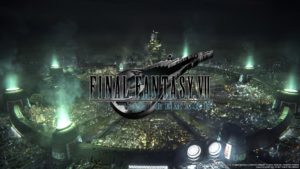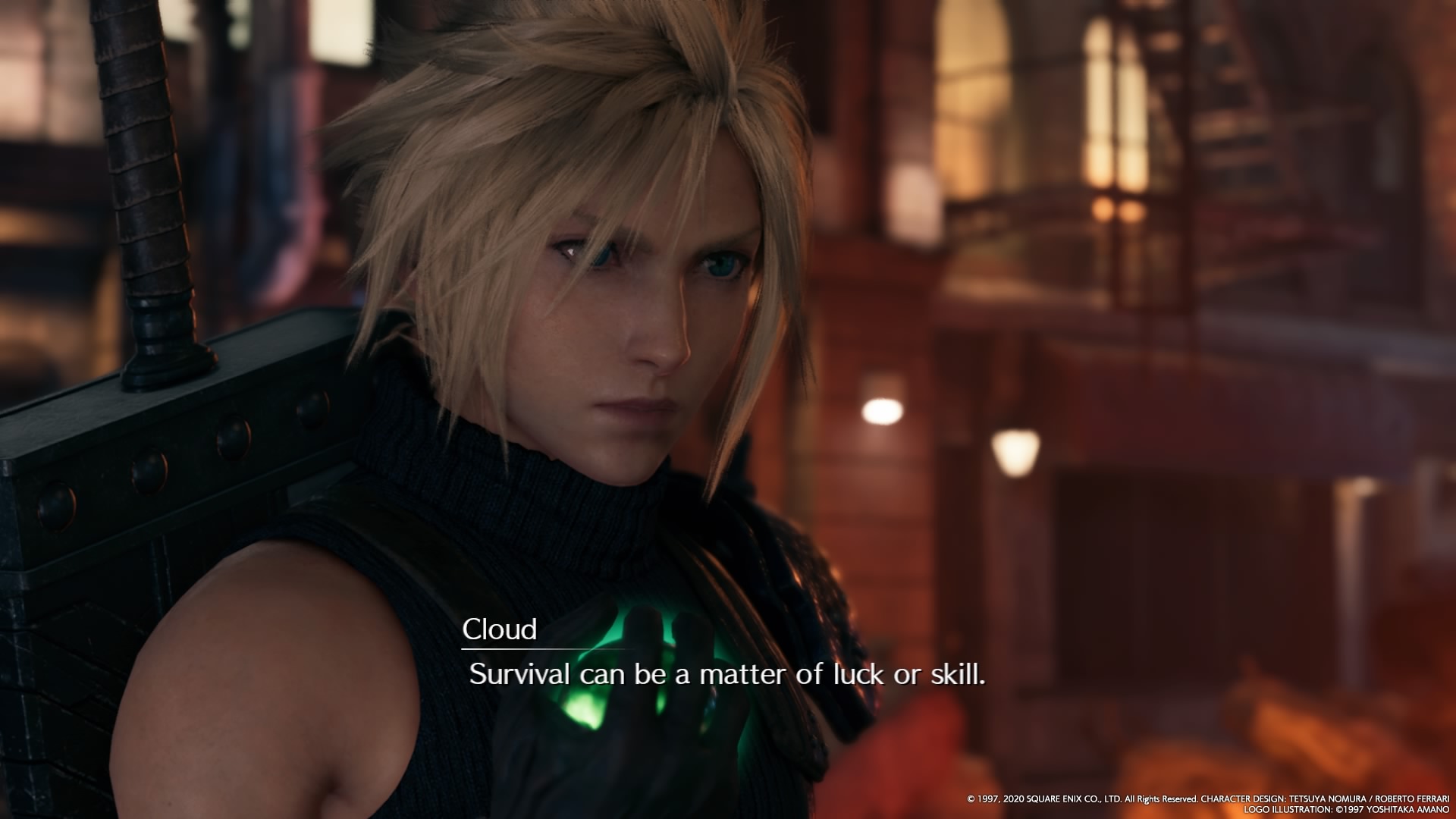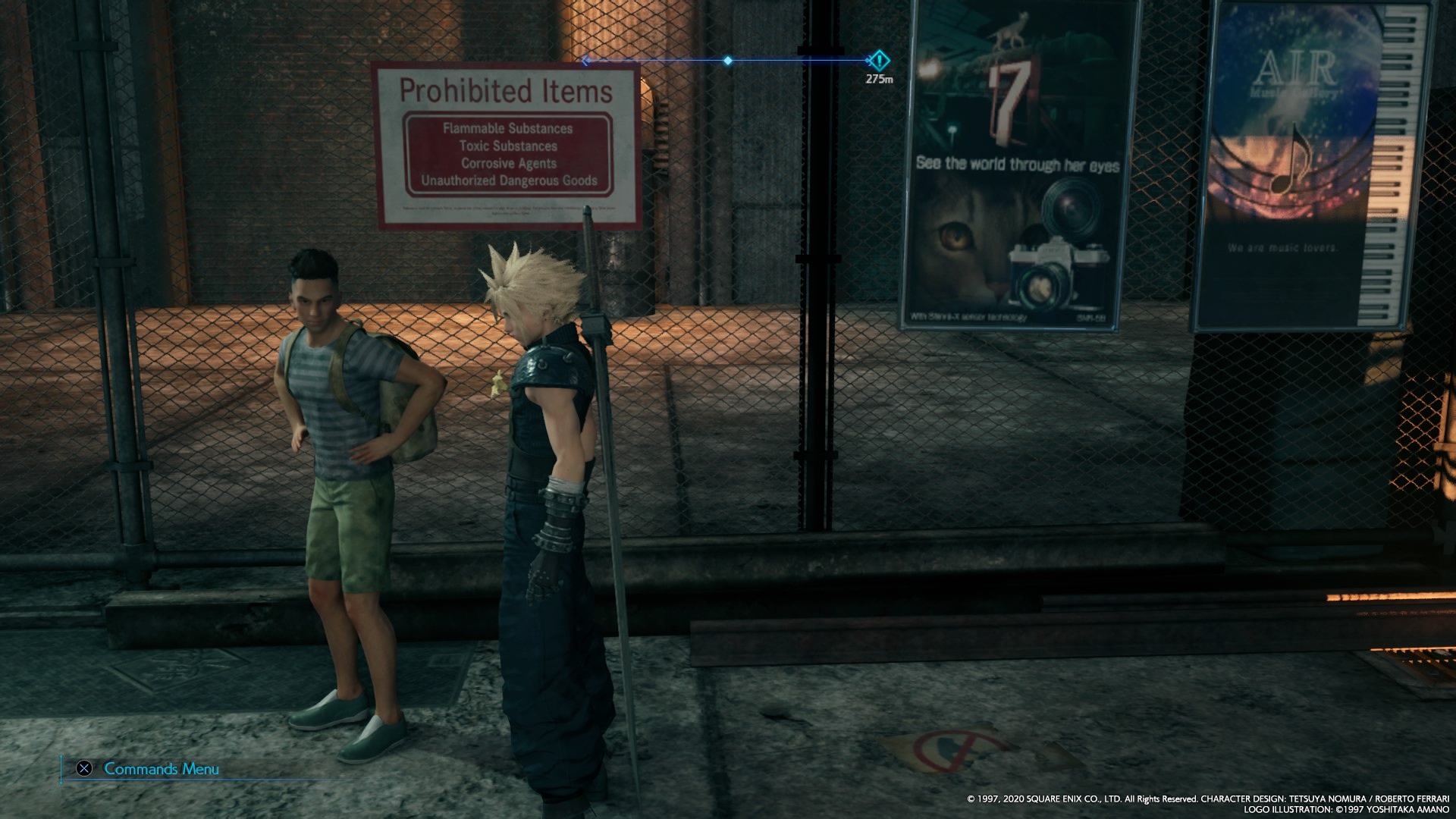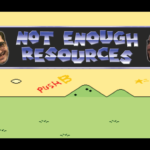Developer: Square Enix
Publisher: Square Enix
Director(s): Tetsuya Nomura, Naoki Hamaguchi, Motomu Toriyama
Supported Platforms: Playstation 4

Cloud Strife and company are back in the long-awaited retelling of a Playstation classic. Final Fantasy 7 Remake (2020) retells the tale of a radical eco-terrorist group (Avalanche) struggling against an ever-oppressive energy company (Shinra) and provides an extended look at the characters and events involved. Throughout this iconic journey, we’re introduced to Cloud’s troubled mercenary past and the often intersecting stories of his party mates Barrett, Tifa, and Aerith (to name a few).
Instead of retelling the entire saga in one game, FF7 Remake diverges from its predecessor by focusing on fleshing out the characters, places, and plot of the Midgar section of the original. While some may decry Square Enix for taking an episodic approach to the remake, this choice has given them the ability to enrich the overall game experience without being beholden to the source material’s dated structure. Balancing fan service with newer action-RPG advances, FF7 Remake succeeds in bringing in old and new players alike with its adapted story focus.
Most remakes and remasters are concerned with directly translating the gameplay experience to a new platform. FF7 Remake is more of an attempt to adapt its source material to meet the modern gaming landscape than a reiteration of the original gameplay and story structure. The expanded focus on fleshing out previous small-time characters, such as Wedge and Jessie, shows that Square Enix is not relying on its old tactics to create the same emotional pull that the original had, but instead looking for new methods to create the same feel. While this doesn’t always succeed, it does bring forward a game that largely expands on the universe of the original, while also being respectful of its source material.
This divergence from straight-port to adaptation can be most evidently seen in its gameplay. Instead of relying on the classic tried-and-true JRPG mechanics that were so prevalent when Final Fantasy Seven (1997) first came out, FF7 Remake is more of action-RPG. Modifications to the Active Time Battle (ATB) and Materia systems closer align it to the action-RPG mechanics prevalent today. Don’t think that this dumbs down the gameplay to a hack-n-slash experience; far from it. Spamming lower-level opponents, the defacto tactic for older RPGs, is replaced with an active management system that heavily relies on leveraging the abilities of your party member’s elemental abilities. Whether it’s fine-tuning the new Materia management system in pre-battle or controlling your party members in real-time, the player is expected to take an analytical and active tact instead of just leveraging level differences.

These gameplay adjustments largely negate the sometimes grinding nature of the original. Rarely did I feel like I had to slog through a section to get to another point. While you may have been able to grind in the original to hurdle over difficulty spikes, this game will instead force you to maximize your materia loadouts and character balance abilities. Think of all of this as if Square Enix gave up the series to Platinum Games and let them mash their action game expertise with Final Fantasy XV (2016).
This insightful strategy of adaptation and inspiration is also present in the design and graphics for FF7 Remake. The models for Cloud and the gang are stunningly designed and hit me like the then jaw-dropping FMV scenes of its original. The number of little graphical Easter eggs littered about that feature deep cuts from the original was a great touch of series reverence without detracting from the overall presentation. The graphical design of this game straddles the line so well between remake and reimagine that everything feels like a romanticization of the original game’s then awe-inspiring graphics.

With that being said, you will occasionally get real Sonic (2006) vibes with some of the lesser NPCs. Understandably, you’re not spending a whole lot of time on these less pivotal characters, but it was enough of a difference that it occasionally took me out of the otherwise beautifully designed world. Some texture issues also showed up, which slightly detracted from the overall experience.
*Please note that I was playing this on an original PS4, so the graphics experience may differ.
The amount of thought that went into this game becomes clear when you stop and listen to music. The remixing and reimagination of Nobuo Uematsu’s original work by Masashi Hamauzu and Mitsuto Suzuki is a walk down memory lane for previous players that keeps things fresh. A great example of this new coat of paint is Wall Market. It’s tone and feel slightly changes depending on what sub-area you’re currently in. While this is not an entirely original thing to do game-wise, its implementation is so well done that I often found myself chilling in sub-areas just to hear the tonal differences.
The gaming world has radically changed since Final Fantasy 7’s initial release in 1997. We’ve come a long way from the glory of pre-rendered FMV’s and gameplay norms that surrounded the original. While not absolute perfection, the conscious and creative choices made while remaking and adapting this gaming icon largely recreate the feel and bluster of the original without feeling dated or out of line. FF7 Remake, at its core, meets the fanservice that its older fanbase has been clamoring for while adapting the pillars of the series to meet the needs of a newer audience. All in all, this is a great experience, regardless of your familiarity with the series.




